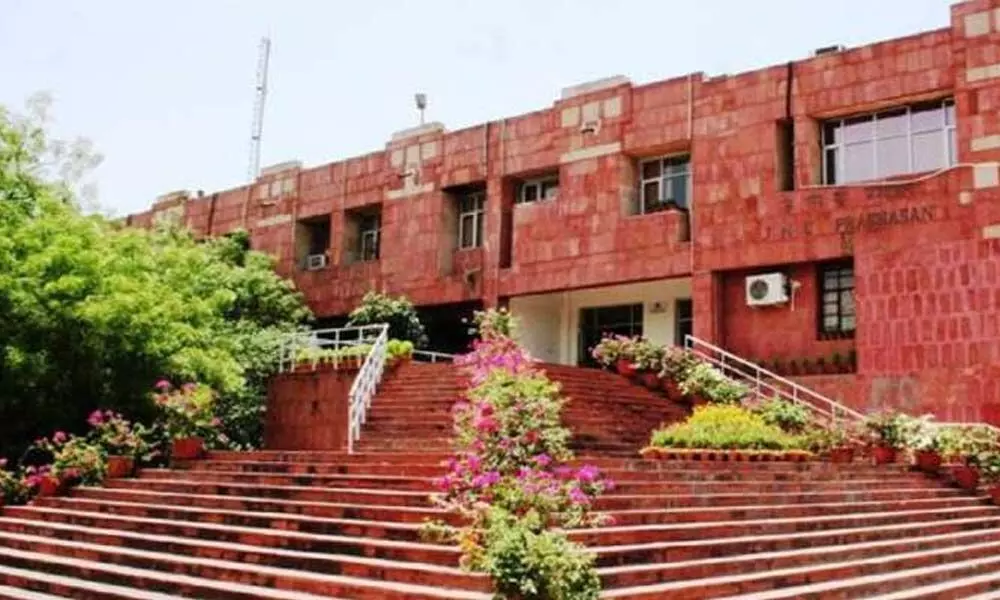An insider's account of affairs at Jawaharlal Nehru University

Jawaharlal Nehru University
The image of the Jawaharlal Nehru University (JNU) has taken a severe beating in the last five years so much so that "many parents do not wish to send their children to study there."
The image of the Jawaharlal Nehru University (JNU) has taken a severe beating in the last five years so much so that "many parents do not wish to send their children to study there."
While the book, published by Rupa, deplores the "ideological hegemony and intolerance of the Left in JNU," arguing that it has brought the university to such a sorry pass, it also makes a case for "not simply substituting the dogmatic Left with the doctrinaire Right"
Just because India's academic and intellectual circles have seen "Left-wing intolerance" for long, it would be a grave mistake to substitute it with "Right-wing intolerance", cautions JNU Professor Makarand R Paranjape in his book billed as an insider's account of the varsity.
In "JNU: Nationalism and India's Uncivil War," Paranjape seeks to find the truth behind the controversies that have plagued the JNU especially since the last six years – from anti-nationalism to arrest of student leaders to the disappearance of a student who to date remains untraced. Paranjape says his book is neither merely a collection of anecdotes or personal experiences, nor is an exercise in institutional historiography or hagiography but an "informed insider's account of the cataclysmic changes" in the JNU during 2016-2021.
He feels the image of the university has taken a severe beating in the last five years so much so that "many parents do not wish to send their children to study there". While the book, published by Rupa, deplores the "ideological hegemony and intolerance of the Left in JNU", arguing that it has brought the university to such a sorry pass, it also makes a case for "not simply substituting the dogmatic Left with the doctrinaire Right".
There should not be an attempt to merely substitute the Left with the Right, but a comprehensive reform should be facilitated which will include a better administration, cleaner campus and better amenities, he suggests. The book pleads for restoration of civil disagreement in place of bitter opposition, dialogue rather than irreconcilable conflict. It proposes remedial strategies of dealing with differences, along with intermedial hermeneutics to negotiate extreme positions and bipolar oppositions.
The book begins with the outline of the wider context. The national, even worldwide, debates on liberalism and nationalism form the core of the first chapter. In the next chapter, the author narrates how he joined the JNU under somewhat unusual circumstances and also recounts his "culture shock at confronting its time-warped Leftist politics, which I considered a combination of delusion and opportunism".
The third chapter is about the events that led to those fateful days in February 2016. Starting on February 9, the university entered a phase of turbulence when a rally was taken out against the so-called 'judicial murder' of two convicted criminals Afzal Guru and Maqbool Bhat. The chapter goes on to recount the slogans that were shouted on campus, the clash between two student groups, and how the JNU came, for all the wrong reasons, into national and international limelight.
Paranjape also talks about the lecture on nationalism that he delivered at the 'Teach-in' on March 3, 2016. "In this most comprehensive and augmented version of my talk, I record how I confronted the then JNU Students' Union (JNUSU) president, Kanhaiya Kumar…," he writes. In the book's epilogue, Paranjape mentions how for a change, the JNU campus went quiet not because of political unrest or student protests but because of a global pandemic.

